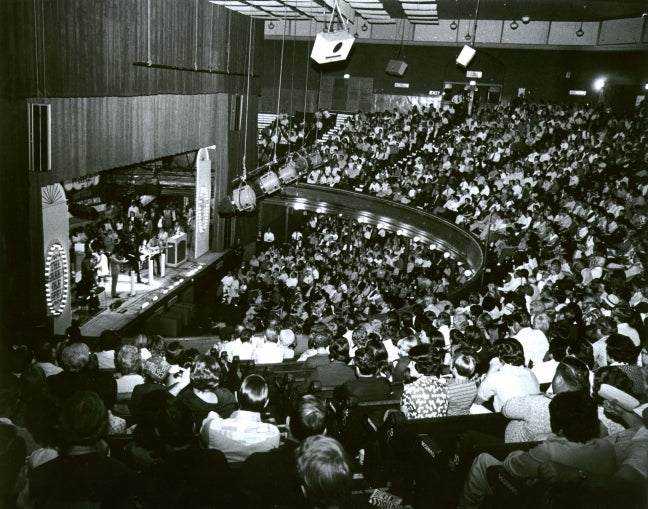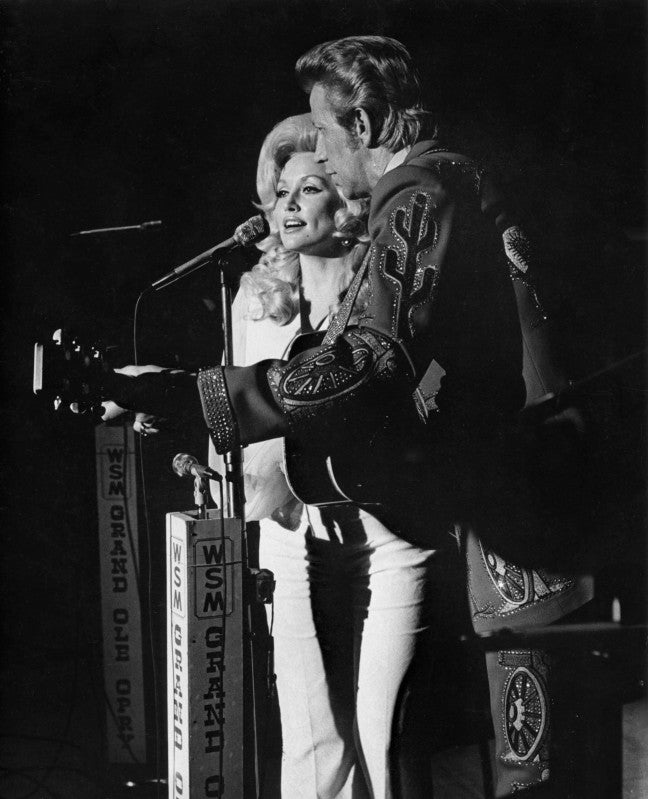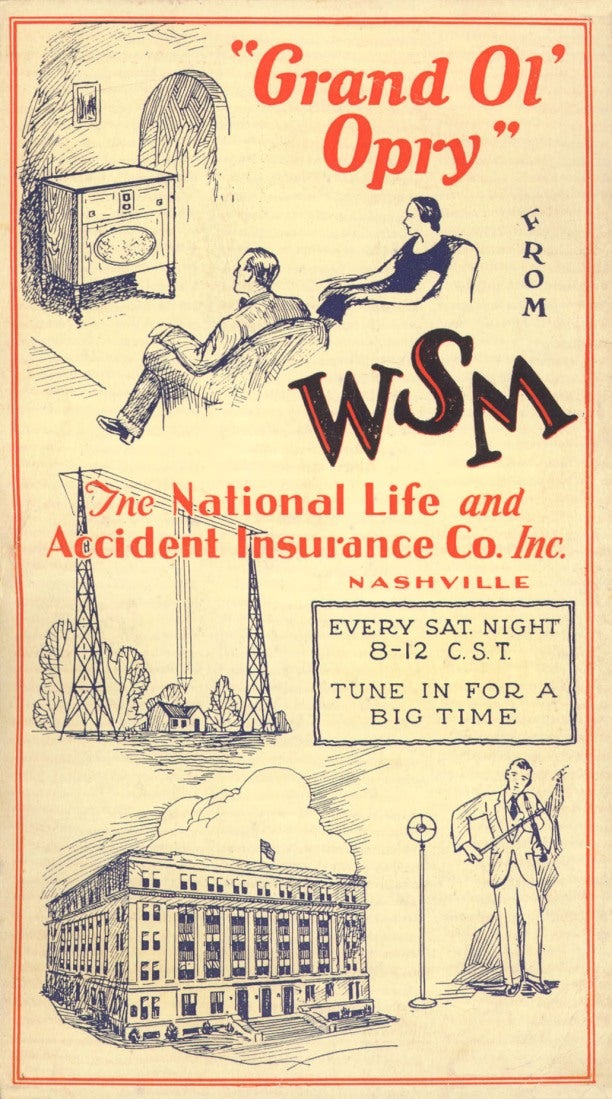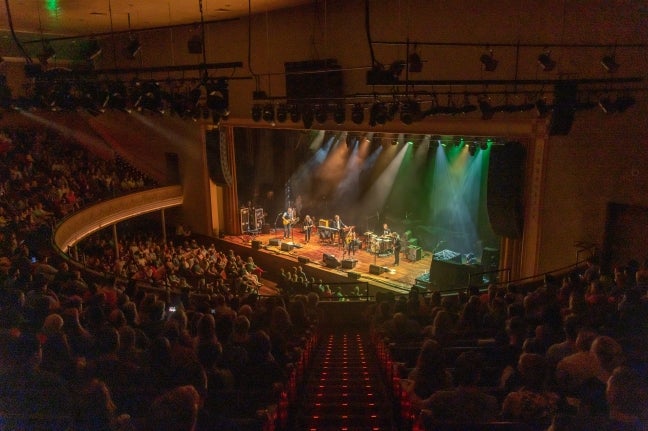What Makes Ryman Auditorium Nashville’s Best Country Concert Venue?
Ryman Auditorium is widely regarded as the best country music venue in Nashville–and perhaps the entire world. It has a long and important history in country music; It’s the original home of the Grand Ole Opry, the birthplace of bluegrass, and the stage from which many country music superstars launched their careers. Plus, the Ryman’s acoustics are astounding, giving it one of the most unique sounds in Music City. Read more to understand why the Ryman is the best country concert venue in Nashville and beyond.
Ryman Auditorium is World-Famous for Good Reasons
Ryman Auditorium has earned its reputation as the best concert venue in Nashville. Its unique acoustics, historical importance in Music City, its role in popularizing country music and the Nashville Sound, and its prominence as a concert venue for music of all genres, not just country, make it an important and highly regarded performance hall.
Ryman's World-Renowned Acoustics

One of the things performers and audiences love about Ryman Auditorium is its unique acoustics. The auditorium was constructed so that sound projects easily from its stage, filling the whole space with a rich, vibrant sound, unlike any other venue. It’s one of the reasons why artists love performing here and why music fans love seeing shows here. The result is a truly unique and immersive musical experience not found anywhere else.
How is the Ryman able to pull off this unique sound? It goes all the way back to the building’s beginning. Ryman Auditorium was originally built as a church called the Union Gospel Tabernacle in 1892. It was the inspired idea of sea captain Thomas G. Ryman, who funded construction of the building after attending a tent revival led by charismatic preacher Sam Jones. It’s Ryman Auditorium’s roots as a church that resulted in its impressive acoustics, as the auditorium was constructed to project the voices, songs, and instruments of weekly church services.
The building served as a church and cultural center for Music City, becoming the home of the Grand Ole Opry from 1943-1974, and earning its reputation as a world-class performance hall upon its restoration in the early 1990s. Today, audiences still face the stage from church pews, originally installed in 1895. They’re one of the many things that remain from the Ryman’s early days and help the venue live up to its name: The Mother Church of Country Music.
Ryman's Historical Importance to Music City

When Ryman Auditorium opened its doors in 1892, it was the largest building of its kind in Nashville. So naturally, it was used as more than a church; It hosted meetings, speakers, concerts, rallies, fundraisers, and other community events. The auditorium quickly became a cultural hub for the young city, a gathering point for Nashvillians to meet, worship, and be entertained.
And the Ryman hosted some extremely famous faces in its early days, including the Fisk Jubilee Singers, magician Harry Houdini, actress Katherine Hepburn, actor Charlie Chaplin, woman’s rights activist Susan B. Anthony, educator and reformer Booker T. Washington, President Theodore Roosevelt, and more.
In October 1901, a stage was built in the auditorium for a performance of Carmen by The Metropolitan Opera, which paved the way for other plays and operas to be performed there. Over the years that followed, the stage was widened to accommodate other shows, eventually taking the familiar shape of today’s Ryman stage.
All these concerts, meetings, and activities gave Ryman Auditorium notoriety and poised it nicely for its next chapter: becoming the new home of a popular live country music radio broadcast called the Grand Ole Opry.
Ryman's Role in Popularizing Country Music

On November 28, 1925, an announcer on Nashville radio station 650 AM WSM introduced 77-year-old fiddler Uncle Jimmy Thompson as the first artist on a new show called “The WSM Barn Dance,” and with that, a new, live radio program was born. Two years later, in 1927, WSM program director George D. Hay nicknamed the popular show the Grand Ole Opry.
The show quickly became the most popular radio entertainment program of its time, bringing country and bluegrass music to the world like never before. And in 1943, the Grand Ole Opry found a permanent home at Ryman Auditorium, where it would stay for more than 30 years.
During its years at the Ryman, the Opry’s popularity grew dramatically. Despite the Ryman’s lack of air conditioning and dressing rooms, audiences wrapped around the venue to get a spot in the 2,300-seat auditorium. The show was transmitted using the world’s tallest radio tower at the time, built just outside of Nashville, bringing country music to living rooms from California to New York for the first time. Audiences across the U.S. had discovered a love for country music.
The Ryman was a launching pad for many early country performers, like Ernest Tubb, Minnie Pearl, and Roy Acuff, as well as the next generation of country music icons, including Dolly Parton and Loretta Lynn. On its stage, country music careers were born and stars were catapulted to fame. Ryman Auditorium was even the birthplace of bluegrass music when, in December 1945, Earl Scruggs debuted with Bill Monroe’s Blue Grass Boys, and the band shared their new sound with audiences across the nation.
The Grand Ole Opry enjoyed a fun-filled and raucous run at Ryman Auditorium for 31 years until, in 1974, it relocated to its permanent home, the Grand Ole Opry House. In the years that followed and with an uncertain future, the Ryman fell into disrepair. For a long time, the building was slated for demolition with plans to use its bricks to build the new Opry House.
Thankfully, due to the efforts of musicians, politicians, and local Nashvillians who recognized the historic importance of the venue, the Ryman was saved. Renovations began in 1992, and the Mother Church of Country Music reopened in June 1994 to welcome audiences once again.
Ryman's Prominence in Modern Music

Thanks to the dramatic restoration efforts by the Ryman’s new owners at Gaylord Entertainment Company, the venue reopened in 1994 as a premier performance hall and museum. A far cry from its early days without a stage, air conditioning, or dressing rooms, the new Ryman Auditorium offered visitors a comfortable and world-class entertainment experience. Still, it maintained architectural features reminiscent of its roots as a church, including stained-glass windows, church pews, and of course, its one-of-a-kind acoustics.
In 2001, Ryman Auditorium was designated a National Historic Landmark. Said Congressman Bob Clement, “The Ryman is a facility of national significance which elicits a certain devotion and reverence from country music stars and fans alike.” And that sentiment remains true today. For both artists and audiences, the Ryman is a bucket list live music venue. Its role in country music history and in Music City make it a top destination for music fans. Plus, its unique acoustics make for a memorable show that can’t be beat. For many, the Mother Church is sacred ground.
Each week, the Ryman hosts performances of all kinds. From country concerts to music of all genres–rock, indie, hip hop, folk, bluegrass, and more–to speakers, lecturers, and comedians, the Ryman’s packed events calendar offers something for everyone. Today, Ryman Auditorium promises what it’s always represented: A transformative experience for all who enter its doors.
Upcoming Country Concerts, Shows & Events
The Ryman’s events calendar is packed with amazing shows every day of the week. No matter what genre you’re interested in, country, rock, indie, hip hop, folk, or something else, you can find a show on the Ryman’s concert schedule. Ryman Auditorium also hosts other events, too, like comedians, speakers, and artist residencies. Check out the latest calendar to see what shows are coming up and to buy tickets.
FAQS
Why Should You Consider Touring the Ryman?
Ryman Auditorium boasts more than 130 years of history and is the heart and soul of Nashville’s music scene. It has played a significant role in the popularizing of country music and its stage has launched countless country legends to fame. The Ryman is one of the most famous music venues in the country. Learn more about what you can expect on a tour of Ryman Auditorium.
Why is Nashville Known For Country Music?
Nashville is synonymous with country music because it’s the home of the Grand Ole Opry, the world’s longest-running live radio broadcast, that started in 1925. The first show of its kind, the Grand Ole Opry transmitted country music from Nashville into homes around the U.S. for the first time, creating a nationwide love for the genre. Learn what other unique things put Music City on the map.
Where is the Best Live Music in Nashville?
Nashville is packed with great venues for live music, but perhaps none is as famous as Ryman Auditorium. With a 130-year history and important role in popularizing country music, there’s nothing else quite like it. Check out our list of top music venues to visit in Nashville.
Does The Ryman Only Play Country Music?
The Ryman hosts more than country music concerts. Performers from all genres are booked at the venue, including rock, indie, folk, hip-hop, and more, as well as a variety of comedians and speakers. Check out the Ryman’s events calendar for the latest concert schedule.
What's the Best Music Museum in Nashville?
Nashville is full of things to do and see and is home to several museums, but Ryman Auditorium stands out among the rest. The Ryman is a living museum full of history and still operates as one of the most famous music venues in the U.S. with a full concert calendar. The Ryman played a central role in the growth of Nashville and the popularization of country music.
Sign Up for Alerts
Sign up for email alerts to stay in the know on everything happening at Ryman Auditorium and in Music City.
Stay in Touch
What’s almost as iconic as visiting the Ryman? Always having the inside scoop!
Sign up for exclusive updates, offers, and events, so you never miss out on what’s happening at the Mother Church.




